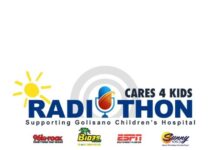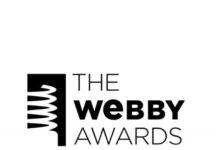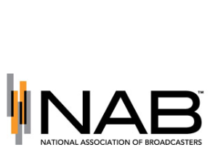
(By John Garziglia) Rolling Stone recently published an article on payola titled “Want to Get on the Radio? Have $50,000?” alleging that pay-for-play remains rampant in our radio industry. While the article was short on specifics, its incendiary premise was that independent record promoters, and by implication radio stations, routinely cross the payola line.
Payola, reduced to its essence, is the lack of a sponsorship ID for money, service, or other valuable consideration, received in exchange for the broadcast of any matter. Section 317 of the Communications Act requires a sponsorship announcement if programming is broadcast in exchange for “any money, service or valuable consideration.” Section 73.1212 of the FCC’s rules expands upon a broadcaster’s sponsorship identification responsibilities with specific requirements for political and issue-oriented matter, and gives exceptions for commercial products and “want-ad” types of announcements.
Any person employed at a broadcast station, or any person providing money, merchandise or services to a broadcast station, in exchange for the broadcast of particular programming, is required to inform the licensee of the radio station about such “money, service or valuable consideration” pursuant to Section 507 of the Communications Act.
Violations of the sponsorship ID rule by broadcast stations have resulted in fines well into eight figures. Station employees and third parties who fail to notify a station licensee of money, services, or valuable consideration proffered or received in exchange for programming can be subject to a jail term or a fine up to $10,000.
Even with the potential for these significant fines and jail time, however, the Rolling Stone article suggests through quotes from people in the music industry that “[payola] never went away” … [e]veryone knows it’s there.” A former major label promotions executive describes compliance agreements between labels and independent promoters as “some bullshit…”
The FCC succinctly notes on its “Payola and Sponsorship Identification” website that “if a record company or its agent pays a broadcaster to play records on the air, those payments do not violate these provisions of the law if the required sponsorship identification information is timely aired by the broadcast station. If [a sponsorship ID] is not aired … the station and others are subject to enforcement action.”
We cannot go through all of the possible examples of when a sponsorship ID is needed, and those instances when one is not. The most prevalent and frequent exception to the requirement for an explicit sponsorship ID is for commercial advertising under Section 73.1212(f) of the Commission’s rules. Section 73.1212(f) exempts commercial products or services where the name of the product or service is sufficient to itself reasonably constitute the sponsorship identification.
Let’s take a look at some of the broad business practices of radio stations to identify some areas in which certain stations may be at risk of sponsorship ID violations, and how, with the advice of its legal counsel, it might analyze those areas for compliance with the FCC’s sponsorship ID requirements.
The starting point for a sponsorship ID analysis is to ask, with respect to each payment, item of merchandise, or service that a radio station receives from a third party, whether, absent there being over-the-air broadcasts, such payment, merchandise, or service would have been otherwise received. Thus, in the traditional bargain of payment being received in exchange for commercial spots, the answer is obvious and a sponsorship identification is required. Most of the time, as noted above, the commercial product’s name will suffice for compliance with the sponsorship ID rule.
But let’s apply this same analysis to an independent record promoter (an “indie”) who pays the radio station for access to programming staff and for information on numbers of spins. If the radio station never played his or her music on the air, would this indie still be interested in the same deal? Probably not.
But that is not the end of the analysis. The question is whether payments by the indie to the radio station in any way influences the programming broadcast by the radio station. There are many things of value a radio station receives, such as tower space rent from cell companies, and payments for voice-over, production, and website advertising, that have nothing to do with on-air programming. But if a payment does impact the programming broadcast, a sponsorship ID is very likely required. If this sounds like the drawing of a very fine gray line, you are right.
Another area that radio stations should be careful of with respect to sponsorship IDs is the sale of block programming time on HD-2 and HD-3 sub-channels, and in time brokerage agreement arrangements. In each of these cases, where a third party is paying for broadcast time on the station, a sponsorship ID is likely required.
This article just touches briefly on the subject of sponsorship identification. There have been a variety of sponsorship ID issues which merited recent enforcement action by the FCC. A good feel for those issues can be obtained by reading through the cases on the FCC’s website in which hefty fines were assessed at “Payola and Sponsorship Identification” which include:
– A failure to broadcast sponsorship IDs when running a video news release produced by the maker of a cold remedy;
– The omission of the word “cigarette” from the name of the business establishment to avoid running afoul of the rule prohibiting cigarette advertising;
– The broadcast of a video news release and associated copy provided by an automobile manufacturer extolling the virtues of convertibles during the summer months;
– The broadcast of spot announcements from a labor organization identifying the organization but omitting the words “sponsored,” “paid for,” or “furnished by”;
– A call-in program without disclosing that the host paid the station to appear;
– The broadcast of news reports regarding car dealership liquidation sales without informing the audience that the subject car dealers paid to have the news reports run; and
– A daily talk show in which the “guests” on the show paid the station to appear and promote their services.
There will continue to be many gray areas with sponsorship ID requirements. For instance, it could be argued that network- or syndicator-supplied news, talk, or entertainment programming supplied in exchange for spot avails must contain a “paid for” or “furnished by” sponsorship ID containing the name of the actual parent owner, rather than just the name by which the network or syndicator holds itself out to the public. So far, however, the FCC does not appear to require an announcement such as “ABC News – furnished by the Disney Company” at the start and end of each five-minute newscast.
Each station should try not to be the test case that sets new precedent. Therefore, in any borderline situation with respect to any receipt of money, services, or merchandise, including programming, by the station or its employees from a third party, the prudent course of action is to consult legal counsel about whether or not a sponsorship ID is required.
John Garziglia is a communications attorney at Womble Bond Dickinson and can be reached at (202) 857-4455 or [email protected]







I’ll read your comments more frequently, I swear. If you have any free time, join me in playing five nights at freddy’s because I’ve never done so.
listen, and listen very carefully please: If a Band, and I will take for the example of a Popular Mexican Band who Charges 15,000.00, 20,000.00, 40,000.00 or I have seen some of them charge up to 80,000.00 thousand dollars per set ( Hour) Depending on the venue. My question is: Why in the hell do those Big for Profit Musical Band should be played for free on the radio??? Do they perform for free on their live events? the answear is NOOOO! Even those those small local bands who perform in weddings, and private events, they too charge thousands of dollars per performance, and they are very much booked the entire year! And if you add to their portafolio that they are being played in the most popular station in town, that even adds more value to their prices! So, why in the hell is it illegal to charge musical bands for their songs insertion, and their song rotation? Why should a radio broadcaster give free exposure to musical bands who are making a lot of money with their live performances. They are a business like any other. Why should you give free advertising to a restaurant, a mechanic shop, or any body else? You should not. So, why Musical bands enjoy the privilege to be played for free on the radio? Just because uncle sams says so? Bulls shit! . Some may argue that with music you attract listeners, but the radio has to pay Big Royalty fees on that music too! a good song its not enough to get free air exposure. If you want to be in a very high rotation, you need to pay for it! I am not in favor of payola, I am just asking the question of why a radio station should give free air time exposure for free to musical organization that make millions of dollars per year performing in huge venues when in this capital economy nothing is for free! Nothing! Times have changed! Radio is competing with other modern technologies, and radio has to try to benefit from any resource possible to survive even including charging bands to be played in high rotations with out disclosing any thing to any one! PERIOD! Most of the Mexican Radio Stations big networks in big markets, with the help of their owners, they have been doing this for years! and I agree with them! Radio is a business! and as in any other business, you can not give any thing for free including your air time to local or national bands!! What a nice way for musical bands, they can charge thousands on their presentations, but radio stations have to expose their music for free! Give me a break!!